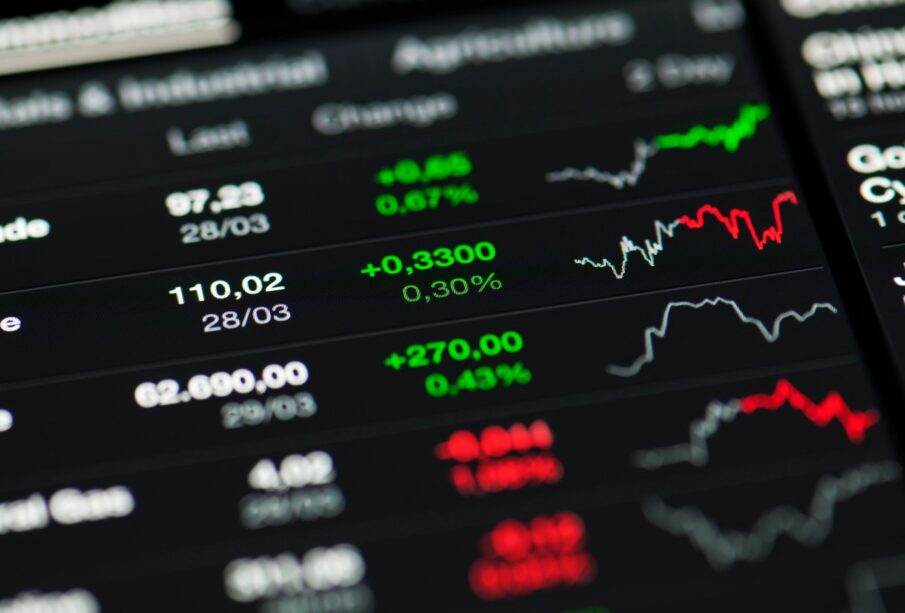
Investing in the stock market or trading various assets can be a lucrative way to grow wealth, but determining what is good to trade now requires careful consideration of current market trends, economic indicators, and personal risk tolerance. Several types of investments might be attractive depending on an individual’s investment goals, whether they’re looking for short-term gains or long-term growth.
Equities (Stocks)
One of the most common things to trade is equities, or stocks. Trading in stocks can be beneficial during times of strong economic growth when companies are likely to increase their earnings. Investors should look for industries that are currently thriving or are projected to grow quickly due to technological advances or societal shifts. For instance, technology and healthcare have been strong sectors historically due, in part, to continuous innovation and demographic trends.
How to Choose Stocks
- Analyze financial statements and earnings reports.
- Follow industry trends and news.
- Use technical analysis for timing your trades.
- Consider blue-chip stocks for stability or growth stocks for potential higher returns.
Bonds
Bonds can be an attractive trade during periods of uncertainty as they provide a fixed return over time. They are seen as safer than stocks, making them a popular choice for risk-averse investors. Trading in government bonds is often considered particularly secure, although the returns are generally lower than those from stocks.
Types of Bonds to Consider
- Government bonds for safety.
- Corporate bonds for higher potential yields.
- High-yield bonds if you’re willing to take on more risk for greater returns.
Commodities
Trading commodities like gold, oil, or agricultural products can be a good hedge against inflation and currency devaluations. Commodity prices can be quite volatile, making them a risky trade, but this also means there’s a high potential reward.
Commodities Trading Tips
- Watch global economic trends, as commodities are sensitive to changes in the world economy.
- Understand the seasonal patterns of agricultural commodities.
- Keep an eye on geopolitical events, especially for oil and precious metals.
Foreign Exchange (Forex)
Forex trading involves buying and selling currencies. It’s the largest and most liquid market in the world. While it operates 24/7 and offers significant leverage, it also comes with substantial risk. It’s well-suited for traders who can tolerate volatility and are well-educated in international economics.
Strategies for Forex Trading
- Focus on the major pairs for more liquidity and better predictability.
- Keep abreast of international news and economic data releases.
- Use both technical and fundamental analysis.
Cryptocurrencies
Cryptocurrencies such as Bitcoin and Ethereum have gained popularity among traders due to their high volatility and potential for large profits. However, trading cryptocurrencies comes with significant risks and prices can be highly unpredictable.
Tips for Trading Cryptocurrencies
- Be prepared for high volatility and potentially large price swings.
- Stay informed about regulatory news which can greatly affect the market.
- Use a risk management strategy to protect your capital.
ETFs and Mutual Funds
For those less inclined to pick individual stocks or bonds, ETFs and mutual funds offer a way to invest in a diversified portfolio. These can be traded just like stocks and can provide exposure to a broad range of assets, including international markets and specific sectors.
Advantages of ETFs and Mutual Funds
- Diversification reduces overall risk.
- Professional management in the case of mutual funds.
- Lower costs associated with index funds or ETFs.
Conclusion
What is good to trade now ultimately depends on one’s personal financial situation, goals, and market knowledge. An effective trading strategy will consider a combination of macroeconomic factors, sector performance, and individual asset analysis while being adaptable to changing conditions in the market. Importantly, regardless of what you decide to trade, ensure that you manage risks appropriately and do not invest money you cannot afford to lose.
Pocket Profits: Your Ultimate Guide to the Top Mutual Fund Apps
December 28, 2023Exploring Quotex VIP: An In-Depth Review of the Platform
November 12, 2023
Comments are closed.
-
How to Improve Network Performance?
July 30, 2021 -
The Importance Of Conducting Background Checks In Meridian
March 11, 2022





